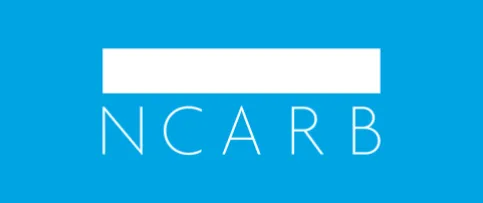Washington, DC— The National Council of Architectural Registration Boards (NCARB) and the National Organization of Minority Architects (NOMA) have released a new action plan to address disparities identified by the organizations’ joint Baseline on Belonging study, with the goal of increasing diversity, equity, and inclusion in the architecture profession.
The recommendations are included in the final Baseline on Belonging report, which compiles the previously published reports along with new information, such as key findings by demographic group, a report on Native American and Pacific Islander respondents, and more.
“The partnership with NCARB has allowed us to quantify the disadvantages BIPOC architects face as they enter the profession, establishing these benchmarks to begin to address the specific challenges we face,” says Tiffany Mayhew, national program manager with NOMA. “Action with intention will yield real results which is what matters now to create the change we want to see as an industry.”
Three key themes were identified throughout the Baseline on Belonging study: individuals who identified as part of multiple underrepresented groups faced higher levels of disparity; disparities faced by minority candidates compounded throughout their career, leading to increasingly higher levels of attrition and difficulty; and the age of candidates has a significant impact on licensure progress.
"The Baseline on Belonging survey has provided the architecture industry with crucial information to evaluate impediments to diversity, equity, and inclusion and now the action plan provided by NCARB and NOMA provides a roadmap for other organizations to make meaningful change,” said NCARB CEO Michael Armstrong.
Developed with the help of a series of focus groups, the report provides detailed areas for action by NCARB and NOMA, including items already in progress and areas for further research. The recommendations include raising awareness of the path to licensure, evaluating the difficulty of the path and the cost of the licensure path, creating more effective mentorship programs, fostering more inclusive firm culture, and more. NCARB has already completed one item from the action plan: on April 30, 2023, NCARB replaced the rolling clock policy with a new score validity policy, a result of from findings from the Baseline on Belonging survey.
In addition to the action plan, the compiled report includes an overview of actions taken by NCARB to address the issues raised by the study, demonstrating our commitment to making the licensure path more accessible. It also includes the results of a follow-up survey exploring the impact of the study thus far and changes in the profession since the initial survey launched.
The Baseline on Belonging study began with an initial survey in early 2020 and included a series of focus groups with NOMA membership in 2022 exploring the underlying reasons why women and people of color left the path to licensure at higher rates than their white, male peers. NCARB and NOMA released four in-depth reports on the study’s findings, highlighting a series of disparities related to education, experience, examination, and firm culture.
Going forward, NCARB and NOMA will continue to collaborate as the organizations address the action items in the report. This includes opportunities for further research and analysis, as well as the development of resources to help candidates and firms.
To learn more about the Baseline on Belonging study and to download the full report, visit http://www.ncarb.org/belong.
About NCARB
The National Council of Architectural Registration Boards’ membership is made up of the architectural licensing boards of the 50 states, the District of Columbia, Guam, the Northern Mariana Islands, Puerto Rico, and the U.S. Virgin Islands. NCARB, in collaboration with these boards, facilitates the licensure and credentialing of architects to protect the health, safety, and welfare of the public.
To achieve these goals, NCARB works with its Member Boards and volunteers to develop and facilitate standards for licensure, including the national examination and experience program. NCARB also recommends regulatory guidelines for licensing boards and helps architects expand their professional reach through the NCARB Certificate. Connect with NCARB on Twitter, Instagram, Facebook, and YouTube.
About the National Organization of Minority Architects (NOMA):
The National Organization of Minority Architects (NOMA) was formed over 50 years ago to represent the needs of African American architects. Founded in 1971, the purpose of NOMA was to bolster and provide support for the handful of Black licensed architects around the country. Today, NOMA is a haven for architects of all origins who seek inclusion in the design industry. We continue to advocate for the licensure of African American architects (who account for only two percent of all licensed architects today), as well as those from other underrepresented backgrounds.
NOMA has more than 40 professional chapters across the U.S. and 114 student chapters, National Organization of Minority Architecture Students (NOMAS) — mentored by regional NOMA chapters. NOMA and NOMAS membership is predominantly African-American, with other minority members including Native American, Hispanic, Middle Eastern, East Indian, and Asian, as well as an increasing segment of non-minority members who support NOMA’s mission. NOMA supports its student members by providing mentorship, scholarships, and job opportunities to ensure their successful transition into the profession. www.noma.net





